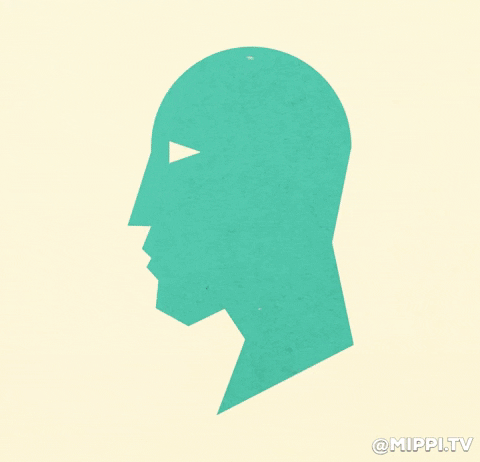#Question: What are the 5 symptoms of Autism?
Talk Nerdy To Me®’s @staffwriter
What are the 5 symptoms of Autism?
Short answer, there aren’t just 5 symptoms of “Autism” – that’s why Autism is a spectrum, it shows differently in everyone.
The term “Autism spectrum” was first introduced in the 1990s to describe the range of conditions that were previously referred to as “Autism” or “autistic disorder.” The term was first used by Dr. Lorna Wing, a British psychiatrist who conducted research on autism and advocated for a broader definition of the disorder.
The concept of Autism as a spectrum recognizes that the disorder can present in a variety of ways and with varying degrees of severity. This includes conditions such as Asperger’s syndrome and pervasive developmental disorder-not otherwise specified (PDD-NOS), which were previously considered separate conditions but are now recognized as falling under the umbrella of Autism spectrum disorder (ASD).
Now let’s check ourselves before we wreck ourselves on “approved” language within the neurodivergent community.
This is courtesy of the beautiful brain of my friend Trauma Geek:
“The neurodivergent community has embraced the term Autistic even though the word Autism was originally understood as an illness.
“We have reclaimed the word.
“The neurodivergent community somewhat reluctantly still uses the term ADHD though several renamings have been suggested such as VAST (Variable Attention Stimulus Trait). Most of us choose to use the most recognizable term for this brain wiring even though we know that it is not a disorder.
“While neither Autism or adhd is a disorder, the neurodiversity paradigm does see these neurotypes as disabilities. Our differences are not supported in mainstream society, and often our differences are punished through social isolation or more explicit control or violence.
“Connection and active community support between neurodivergent people is one way that we help each other cope with being disabled in a society that cares very little about disability. (In fact, this is one of the key words that will trigger the bots to show this post to fewer people but I’m going to use it anyway because I’m not ashamed of being disabled.)”
What are signs of mild Autism?
The phrase “mild Autism” and “highly functioning” are considered offensive in the neurodivergent community.
It’s like judging a book by its cover and it doesn’t take into account that level of functioning fluctuates continuously depending on so many factors.
For a lot of Autistic people their functioning level fluctuates daily depending on environmental factors, sensory needs, physical health and mental health.
Here are some common signs that may indicate Autism:
Difficulty with social interactions: People with mild Autism may struggle to understand social cues and body language, find it challenging to initiate and maintain conversations, or prefer to engage in solitary activities.
Difficulty with communication: Individuals with mild Autism may have difficulty expressing themselves verbally or nonverbally. They may have limited language skills, struggle to understand abstract concepts, or repeat phrases or words.
Repetitive behaviors and routines: People with mild Autism may engage in repetitive movements or behaviors, such as rocking back and forth, flapping their hands, or lining up objects.
Sensory sensitivities: Individuals with mild Autism may be hypersensitive or hyposensitive to sensory input, such as loud noises, bright lights, or certain textures.
Difficulty with transitions and changes: People with mild Autism may have difficulty adjusting to changes in routine or unexpected events.
Is ADHD a part of Autism?
Autism & ADHD are genetic neurotypes. Over 200 genes are associated with these two divergent phenotypes. While trauma can make divergent traits more medically evident, the traits of these conditions do not require trauma activation to be expressed.
Though these are distinct conditions, there is significant overlap between them. 60% of Autistic people are also ADHD. 40% of ADHD people are also Autistic. The combination of two sets of ADHD genes (one from each parent) has occasionally resulted in an Autistic phenotype in the child.
Attention Deficit Hyperactivity Disorder (ADHD) is not a part of Autism spectrum disorder (ASD), although the two conditions may share some similar symptoms. ADHD is a separate neurodevelopmental disorder characterized by symptoms such as inattention, hyperactivity, and impulsivity.
However, it’s not uncommon for individuals with ASD to also have ADHD. Studies suggest that approximately 30-50% of people with ASD also have symptoms of ADHD. In these cases, the presence of ADHD can make it more difficult to diagnose ASD because the symptoms can overlap.
It’s important to note that both ADHD and ASD can have a significant impact on a person’s daily life, and a proper diagnosis is essential for effective treatment and support. If you or someone you know is experiencing symptoms of ADHD or ASD, it’s recommended to consult with a healthcare provider or specialist for an accurate diagnosis and appropriate treatment.
What happens if Autism is not treated?
Here are some of the potential consequences of untreated Autism:
Social isolation: It is TERRIBLY lonely being neurodivergent while trying to fit into a neurotypical world. Think about it in terms of shapes. It’s like being a triangle and trying to fit into a square peg. Sure, with some pushing, you miigghhhtttt be able to work, but bottom line is we are VERY AWARE that we are different, we just don’t always know what to do about it – which can be very exhausting and lead to burnout.
Communication difficulties: Untreated Autism can lead to significant challenges with social cues. Imagine consistently being on the outside of inside jokes. It is very confusing because we are very direct and blunt – which at times, can be off putting.
Behavioral challenges: Individuals with untreated Autism may engage in repetitive behaviors, have difficulty adapting to changes in routine, or exhibit challenging behaviors, such as aggression or self-injury.
Learning difficulties: Untreated Autism can interfere with our ability to learn and succeed in school or in the workplace.
Mental health concerns: People with untreated Autism may be at higher risk for mental health conditions, such as anxiety or depression, due to the challenges associated with the condition.
Are you born with Autism?
Yes, it’s something you’re born with.
Signs of Autism might be noticed when you’re very young, or not until you’re older. If you’re autistic, you’re autistic your whole life. Autism is not a medical condition with treatments or a “cure”.
Because obviously that would be boring …
While the exact causes of Autism are not fully understood, research has shown that genetics plays a significant role. Studies have found that individuals with a sibling or parent with ASD are more likely to develop the condition themselves, and certain genetic mutations have been linked to an increased risk of Autism.
Environmental factors, such as prenatal exposure to certain chemicals or infections, may also contribute to the development of Autism. However, it’s important to note that Autism is not caused by parenting practices or other external factors.
Do Autistic traits get worse with age?
Define “worse.”
There is no one-size-fits-all answer to this question, as the trajectory of Autism can vary widely from person to person. Some individuals with Autism may develop better coping mechanisms and social skills as they get older, while others may experience increased social isolation or difficulties with employment or independent living.
It’s important to note that Autism is a lifelong condition, and while some individuals may experience improvements in symptoms, others may continue to need support and treatment throughout their lives. With the right interventions and support, individuals with Autism can learn to manage their symptoms and live fulfilling lives.
Can Autism be treated?
Define “treated.”
I’m ELATED that I’m autistic. Finding out that I was neurodivergent felt like finding the golden ticket to the Willy Wonka factory. Everything about my life has changed dramatically and I wouldn’t change a thing.
However, some common treatments can help:
Behavioral therapy: This type of therapy focuses on teaching new skills and behaviors and reducing challenging behaviors. Applied Behavior Analysis (ABA) is a type of behavioral therapy that has been shown to be effective helping Autistics cope.
Speech therapy: This type of therapy can help individuals with Autism improve their language and communication skills.
Occupational therapy: This type of therapy focuses on developing skills for daily living and improving fine motor skills and sensory processing.
Medication: Some medications can be used to manage specific symptoms of Autism, such as anxiety or hyperactivity.
Parent education and training: Parents can learn strategies for supporting their child with Autism at home and in the community.
Can trauma cause Autism?
Trauma alone is not considered a direct cause of Autism Spectrum Disorder (ASD). However, trauma, particularly during prenatal development or early childhood, can increase the risk of developmental delays or other conditions that may be comorbid with or mistaken for ASD.
A recent study by Roberts et al. (2015) found a strong association between trauma, PTSD and autistic traits (which may have been sub-clinical) in adult women. This association was highest amongst those women with the most severe autistic traits.
Can a lack of oxygen at birth cause Autism?
Technically this is a follow up question (since its low oxygen at birth is considered traumatic).
While there is evidence to suggest that lack of oxygen at birth, also known as hypoxia, can lead to a variety of neurological disorders, including cerebral palsy and intellectual disability, the relationship between hypoxia and Autism is not as clear-cut.
While some studies have found a correlation between hypoxia at birth and an increased risk of Autism, others have not found such a relationship. It is also possible that hypoxia may contribute to the development of Autism only in certain cases, such as in individuals who are already genetically predisposed to the disorder.
Overall, while the relationship between hypoxia at birth and Autism is still being studied, it is not currently considered a definitive cause of Autism. Other factors, such as genetics and environmental factors, are also believed to play a significant role in the development of autism.
Explain to me in simple terms if a lack of oxygen at birth cause Autism
While there is evidence to suggest that lack of oxygen at birth, also known as hypoxia, can lead to a variety of neurological disorders, including cerebral palsy and intellectual disability, the relationship between hypoxia and Autism is not as clear-cut.
While some studies have found a correlation between hypoxia at birth and an increased risk of Autism, others have not found such a relationship. It is also possible that hypoxia may contribute to the development of Autism only in certain cases, such as in individuals who are already genetically predisposed to the disorder.
Overall, while the relationship between hypoxia at birth and Autism is still being studied, it is not currently considered a definitive cause of Autism. Other factors, such as genetics and environmental factors, are also believed to play a significant role in the development of autism.
How can I find out if I carry the Autism gene?
CONGRATULATIONS IF YOU DO!!!!!
If you are interested in learning about whether you carry a genetic risk for Autism, there are several options for genetic testing that you can discuss with a healthcare provider or genetic counselor. These may include:
Chromosomal microarray analysis (CMA): This type of test looks for large genetic changes, such as deletions or duplications, that may increase the risk of Autism.
Whole exome sequencing (WES): This type of test looks for mutations in specific genes that are associated with Autism.
Whole genome sequencing (WGS): This type of test looks at an individual’s entire genetic code to identify mutations or variations that may increase the risk of Autism.
It’s important to note that genetic testing for Autism is not a diagnostic tool and cannot definitively predict whether an individual will develop the condition. Additionally, the decision to pursue genetic testing is a personal one and should be made in consultation with a healthcare provider or genetic counselor who can help you understand the potential risks and benefits of testing.
Which parent carries Autism gene?
Autism is a complex condition with a genetic component, meaning that it is influenced by multiple genes and inherited in a complex manner. It is not caused by a single gene, and therefore, there is no specific “Autism gene” that can be attributed to one parent.
Due to its lower prevalence in females, Autism was always thought to have a maternal inheritance component. However, research also suggests that the rarer variants associated with Autism are mostly inherited from the father.
Why is Autism so common now?
Like Kale in 2010, Autism is finally having its “moment.”
However, it is important to note that this increase may be due in part to improved awareness and diagnostic criteria, as well as increased efforts to identify and diagnose individuals with Autism.
Some factors that have been suggested as possible contributors to the increased prevalence of Autism include:
Broadened diagnostic criteria: The diagnostic criteria for Autism have broadened over time to include a wider range of symptoms and severity levels. This has led to more individuals being diagnosed with the condition.
Increased awareness via social media: Social media has brought awareness to new heights. The only thing better than being Autistic and having a special interest is HAVING that special interest be Autism. We have united, and it’s about time!!
Genetic and environmental factors: There is evidence to suggest that genetic and environmental factors may also play a role in the increased prevalence of Autism. However, research in this area is ongoing, and the exact causes of Autism are not fully understood.
It is also important to note that the reported increase in Autism prevalence may be influenced by factors such as changes in diagnostic practices, improved record-keeping, and changes in social attitudes towards the condition. Overall, the reasons for the apparent increase in Autism prevalence are complex and multifactorial, and further research is needed to fully understand this trend.
Is Autism a form of disability?
In many countries, including the United States, Autism is officially recognized as a disability under the law. Autistic people may be eligible for certain accommodations and support services, such as a service dog, special education, vocational rehabilitation, and assistive technology, to help them manage their symptoms and participate fully in a neurotypical world.
Think, “I’m just a neurodivergent, standing in front of a neurodivergent ready to love my self, and find ways to get along with everyone else.”
It is important to note, however, that Autism is a complex and varied condition, and individuals with Autism may have a wide range of strengths and challenges. Some individuals with Autism may require significant support throughout their lives, while others may be able to live independently and contribute to society in meaningful ways. The needs and abilities of individuals with Autism should be assessed on a case-by-case basis, and any support or accommodations should be tailored to the individual’s specific needs and goals.
In Conclusion …
It’s important to recognize that being autistic is a neurological difference rather than a disorder or a deficit. Many autistic individuals have unique strengths and abilities, such as heightened perception and attention to detail, exceptional memory, and creativity. Autistic individuals can have a deep passion for their interests and hobbies, and may excel in fields such as science, technology, engineering, and mathematics (STEM). Additionally, they may offer unique perspectives and ways of thinking, which can bring diversity and innovation to society. Overall, being autistic can be awesome in its own way, and it is important to embrace and celebrate neurodiversity.






